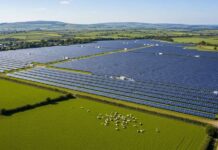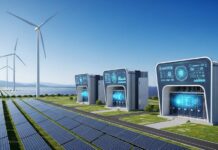Solar Energy UK has gone on to say that the PV sector happens to carry no threat to food security after Claire Coutinho, the Energy Secretary, went on to issue a written ministerial statement that reiterated the government’s policy as far as the issue is concerned.
The chief executive of Solar Energy UK, Chris Hewett, went on to say that solar farms happen to take up a tiny fraction of the country, which is still going to hold the case in 2035 when the government expects to have four times the present solar generation capacity.
There is indeed no threat at all to food security, and there has never been one and never will be. Rather, it is the opposite. As per Defra, the major threat to food security comes from climate change, which is what the solar farms are there to fight against. Moreover, without them, there would be hundreds of traditional farming businesses that would have gone to the wall, thereby not being able to produce food sans the security of a reliable income.
Hewitt comments came after Coutinho, in a ministerial statement, said that the documents published in January 2024 make it very clear that the applicants should, wherever possible, make use of suitably developed land, contaminated and an industrial land, and even brownfield land.
The comments from Coutinho came after certain media reports said that ministers are all set to crack down on solar projects. But the REA remarked that it was indeed unclear what the comments from Coutinho would add to the existing policy in that area.
Coutinho said that where the proposed usage of any agricultural land happens to be shown to be necessary, quality land that is poorer should be preferred to rather higher quality land, thereby avoiding the usage of the best and most versatile agricultural land wherever it is possible.
The Government in Powering Up Britain: Energy Security Plan went on to clarify that while solar as well as farming can indeed be complementary, developers must also take into consideration the ongoing food production.
The fact is that the only prominent change that was announced by Coutinho was with regards to the perceived precision of the soil quality grading. The government looks forward to addressing it by way of supporting independent certifications of evaluations made by the developers, which should in a way help avoid any kinds of disputes on which areas happen to be subject to planning guidelines pertaining to higher-quality agri land.
The chief executive of the REA, Dr. Nina Skorupska, CBE, said that they need all the tools as well as technologies so as to reach net zero, and they know for a fact that solar goes on to remain a pretty highly popular tech among the public at large. While they do understand that land use has to be planned in a careful way and do not intend to see loss of productive land, the planning guidance that’s existing also ensures this by way of banning solar farms on the best quality farmlands and in a way considering cumulative development concerns.
The REA also went on to argue that restricting more solar development would indeed pose a serious threat as far as jobs are concerned, as well as the investment created because of the sector and also the large solar farm sector, which is being built mostly sans public billpayer support.
All this is indeed going to undermine the UK government’s capacity to go ahead and meet a net-zero power system by as early as 2035 and hence keep the country locked in fossil fuels at huge costs to businesses as well as households.
It also went on to call on the government to go ahead and publish its solar roadmap after the work of the solar taskforce so as to outline how else one can go on to meet the stretching but very much needed 70 GW solar PV rollout target.
































